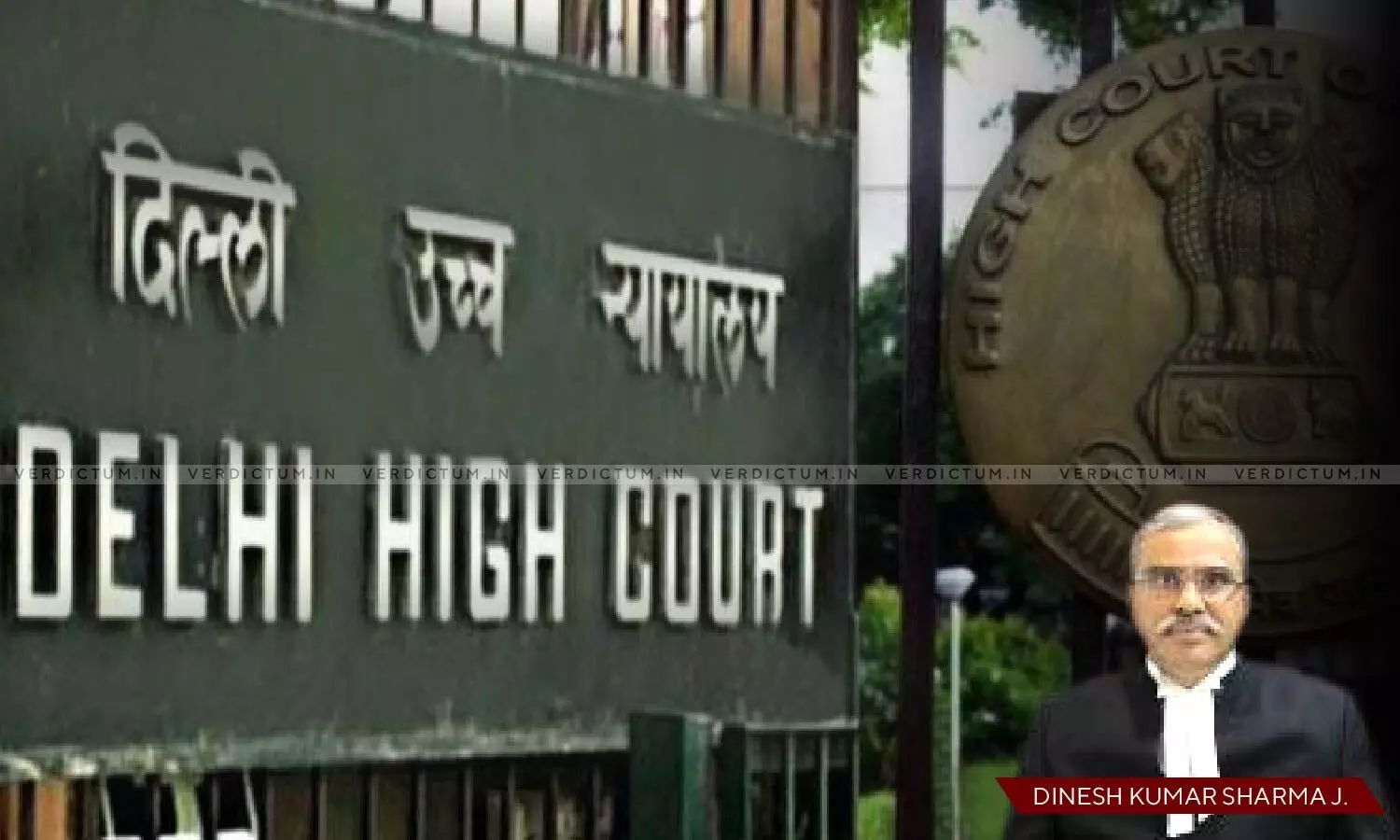
Twin Conditions U/s. 45 PMLA Do Not Put Absolute Restrain On Bail Or Require Positive Finding Qua Guilt: Delhi HC
 |
|The Delhi High Court has granted bail to an Indore based real estate developer, Vijaya Agarwal, for an alleged involvement in a money laundering case, considering an urgent need of medical care and the 'broader probabilities'. The bench considered the principle of broader probabilities in grant of bail, as held in Sanjay Pandey v. Directorate of Enforcement 2022 SCC OnLine Delhi 4279.
“…If the liberty of an individual is concerned, the Court cannot proceed merely on the basis of assumptions and presumptions. The evidentiary value of the statement recorded under Section 50 of PMLA has to be tested at the end of the trial and not at the stage of bail. The twin conditions of Section 45 do not put an absolute restrain on the grant of bail or require a positive finding qua guilt”, a bench of Justice Dinesh Kumar Sharma observed in the matter.
Senior Advocate Siddharth Aggarwal appeared for the petitioner, and Advocate Zoheb Hossain, Special counsel appeared for the respondent-Enforcement Directorate.
In the present matter, ED had alleged that Naresh Jain along with his brother Bimal Jain (main accused persons) and other accomplices hatched a criminal conspiracy to cause loss to the exchequer and banks by indulging in illegal foreign exchange transactions on the basis forged/ fabricated documents.
However, upon investigation it was found that the petitioner was also actively involved in the entire scheme of money laundering, being involved in different processes of the same at different stages.
It was further alleged that-
-the petitioner acquired 50% shares of the company belonging to main accused persons at a price of Rs.5 lakh, while the actual valuation of which was Rs.18 crores and therefore, the petitioner was in receipt of proceeds of crime in the sum of Rs.17,95,00,000/-.
-the petitioner had acquired certain loans from the shell companies of the co-accused persons which again allegedly amount to indulging knowingly in any process or activity connected with the proceeds of crim.;
- the proceeds of crime was laundered through M/s R.C.Warehousing.
The petitioner, therefore inter alia stated that that the shares were taken only to secure his interest and he has till date not received any money rather, has given a security of Rs.21 lakhs.. Furthermore, that he is a renowned developer and he did not know that he is dealing with the tainted money.
The Enforcement Directorate, however, while citing Vijay Madanlal Choudhary & Ors.v.Union of India & Ors. 2022 SCC OnLine SCC 929 and Tahir Hussain vs. Directorate of Enforcement 2022/DHC/005093, opposed his plea vehemently.
The grounds being:
- that petitioner’s role in the alleged matter, makes out a prima facie case and hence he does not meet the mandatory rigour of the twin conditions as imposed under Section 45 of the PMLA.
- that the "proceeds of crime" include property not only derived or obtained from the scheduled offence but also any property which may directly or indirectly be derived or obtained as a result of any criminal activity related to the scheduled offence.
The bench, therefore, after considering the facts, at the outset was of the opinion that the petitioner’s plea that he did not know that he is dealing with the tainted money cannot be brushed aside mechanically.
However , considering that the complicity of the petitioner in the committed act was found later, the bench was of the opinion, “The offence of money laundering can be seen as a running-goods train where the bogey keeps on adding. The question to be determined is whether the bogey which is attached knew the culpability of the bogey which had already been there. The core question is that whether the person whose role has been found later knew that the money which he has been dealing with is a proceed of crime. The court understands that this is very difficult for the department to find direct evidence regarding this. But at the same time, despite the twin conditions, the court cannot return any finding merely on the basis of inferences and presumptions”.
“…In order to be punished under Section 3 of PMLA, It is necessary that person dealing with the “Proceed of crime” must have some knowledge that it is tainted money. Though, the direct evidence in this regard may not be possible and the Court is also conscious of the fact that at this stage, the evidence cannot meticulously be examined for this purpose. At the same time, for the purpose that evidence cannot be meticulously examined at this stage, the Court cannot merely proceed on the basis of assumption. There has to be some substantial link between the money received and criminal activity relating to scheduled offence which can be attributed to the petitioner”, the judgment further read.
The bench also took note of the fact that the petitioner is suffering from numbness of limbs, which is a precursor to possible paralysis, therefore required urgent medical attention.
Accordingly, while granting bail subject to furnishing a personal bond in the sum of Rs.25,00,000/-, the Court disposed of the matter.
Cause Title: Vijay Agrawal Through Parokar v. Directorate Of Enforcement
Click here to read/download the Judgment